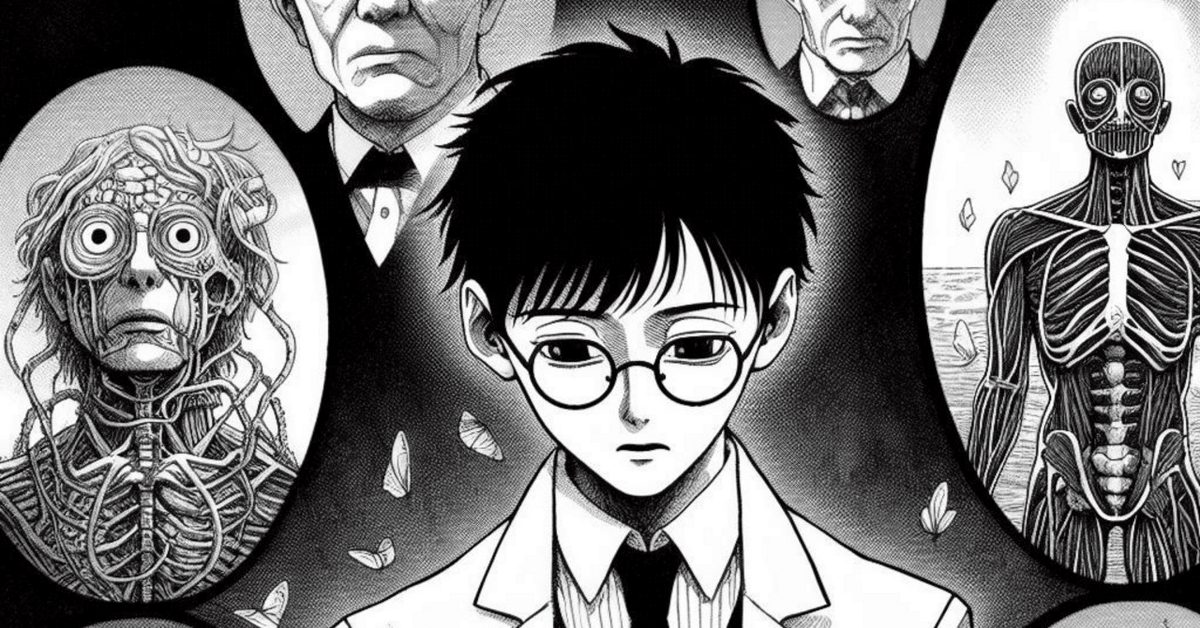
"The Metamorphosis" by Franz Kafka.
Recommended for:
Franz Kafka’s "The Metamorphosis" is recommended for the following people:
Literature Enthusiasts: People interested in early 20th-century literature. Kafka's unique writing style and themes are must-reads.
Psychology Buffs: Those who enjoy stories that delve into the depths of the human mind. It provides an opportunity to deeply analyze the protagonist's inner world.
Those Who Feel Alienated or Isolated: People who have experienced alienation or a sense of not fitting in with society.
Philosophy Enthusiasts: Those interested in philosophical themes related to existentialism and personal identity.
Symbolist Literature Fans: People who enjoy deciphering stories through symbols and metaphors.
Synopsis:
Kafka's "The Metamorphosis" begins with the protagonist, Gregor Samsa, waking up one morning to find himself transformed into a gigantic insect.
Summary:
Gregor works as a traveling salesman to support his family. One morning, he wakes up to find himself transformed into a gigantic insect. This strange transformation makes it difficult for Gregor to even get out of bed. His transformation shocks his family, initially spreading fear and confusion.
Family's Reaction:
At first, the family is frightened and disgusted by Gregor's transformation, but they gradually face the reality that they must take care of him. His sister, Grete, in particular, takes on the role of bringing him food and cleaning his room. However, as time goes by, the entire family becomes exhausted, and their attitude towards Gregor grows cold.
Isolation and Despair:
Gregor becomes increasingly isolated from society and alienated from his family due to his transformation. His existence becomes a significant burden on his family, who eventually come to silently wish for his death.
Conclusion:
In the end, Gregor realizes that his existence is nothing but a burden to his family, and he meets his end in despair. After his death, the family decides to return to a normal life and finds hope in a new future.
"The Metamorphosis" is a work with deep themes that raise questions about identity, alienation, and the nature of existence.
Author Biography:
Early Life and Education:
Franz Kafka was born on July 3, 1883, in Prague, in what was then the Austro-Hungarian Empire. He grew up in a Jewish family and spoke German and Czech from an early age. He studied law at Charles University in Prague and obtained his doctorate in law in 1906.
Career as a Writer:
Kafka worked as a lawyer by day, and pursued writing at night. His works mainly consist of short stories and unfinished novels that explore themes of absurdity, isolation, and rebellion against authority. His notable works include "The Metamorphosis" (1915), "The Trial" (1925), and "The Castle" (1926). His unique writing style and themes have had a profound influence on later generations.
Later Years and Death:
Kafka struggled with health issues, particularly tuberculosis. He often sought treatment and this affected his ability to write. He ultimately passed away on June 3, 1924, in Kierling, Austria. After his death, his friend Max Brod edited and published many of his unpublished works, further cementing Kafka's reputation.
Writing Style:
Absurdity and Isolation: Kafka’s works often focus on absurd situations and feelings of isolation. Characters are frequently caught in incomprehensible circumstances and oppressed by authority.
Psychological Focus: There is a significant emphasis on the internal struggles and psychological depictions of characters. Kafka’s stories detail the intricate movements and emotions of their minds.
Symbolism: Kafka’s works are rich with symbolism and metaphor. For example, in "The Metamorphosis," the protagonist’s transformation into a giant insect symbolizes human alienation and self-loss.
Critique of Bureaucracy: His works such as "The Trial" and "The Castle" include criticisms of bureaucracy and meaningless authority. Characters often find themselves entangled in futile and irrational situations.
Dark Tone: Generally, his works feature dark and bleak tones, depicting a worldview where hope and salvation are nearly absent.
Major Works:
The Metamorphosis (Die Verwandlung): A short story published in 1915 about a man transforming into a giant insect.
The Trial (Der Process): An unfinished novel published posthumously in 1925 about a man arrested without being told the reason.
The Castle (Das Schloss): An unfinished novel published posthumously in 1926 about a man’s futile attempts to gain access to a mysterious castle.
Amerika (Der Verschollene): An unfinished novel published posthumously in 1927 about a young man’s attempts to start a new life in America.
The Judgment (Das Urteil): A short story published in 1913 depicting a father-son conflict.
